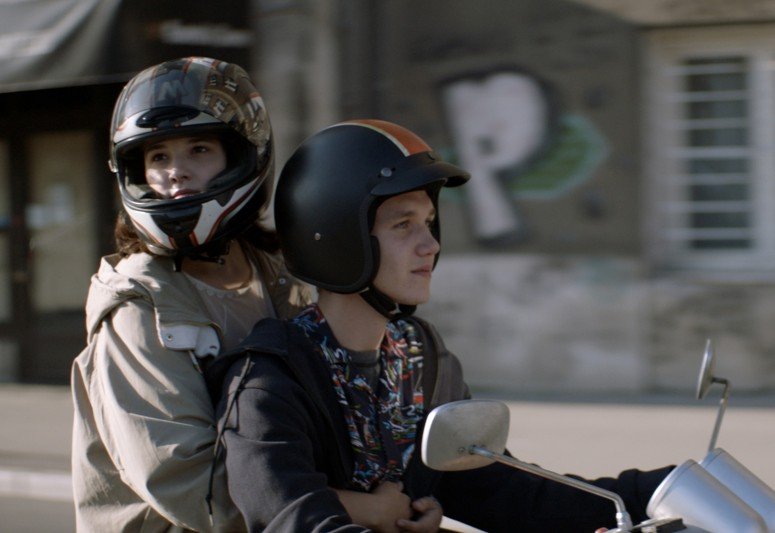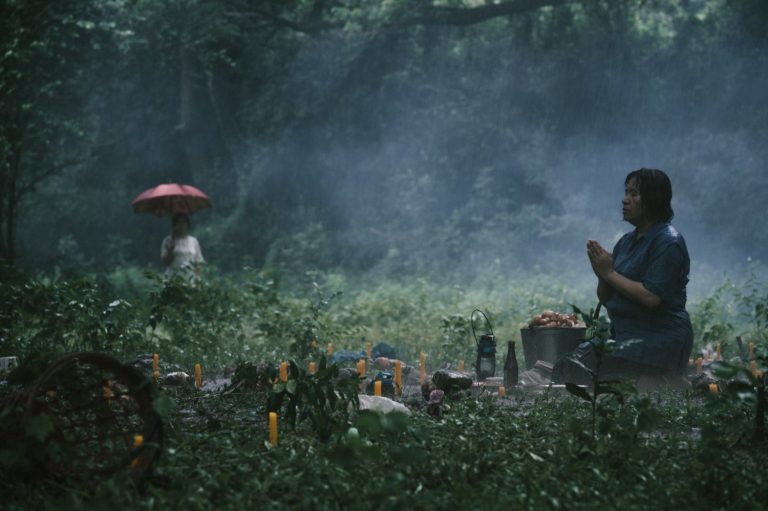Igor Drljaca’s The White Fortress (Tabija) initially plays out most conventionally: the film sets up its protagonist, the Muslim-Bosnian man Faruk as someone who charms girls with his easygoing humour and cute looks. It also randomly reveals the solidity behind the elegant exterior: he is involved in the world of crime, constantly trying to escape the clutches of poverty and somehow passing his days with a dying grandmother. In his pursuances, he proceeds to meet Mona in an apartment. Mona is a simple, gentle girl. She comes from the bustling city of a soaring economy with dark undercurrents. Her father is rich, and she is soon relocating to Canada.
The love between Mona and Faruk effloresces as the tension between Faruk and his criminal kingpins seethe in oppression. There’s the promise of an ultimately star-crossed romance and a slow-burn crime drama here, but writer-director Igor chooses a milder, although more inconstant approach- the only perspective we are shown is that of Faruk- he is a life of both charming beauty and relentless ugliness. But The White Fortress writes him with an exquisite sense of empathy, which makes his character study more modest than it would ever be. But it also gives the film a defter touch of realism. It doesn’t exploit the complexity and dilemma of being a teenager in a circumstance of utter degeneracy, but it certainly humanizes it with its supposed lightness, that hides a morose interior.
RELATED TO THE WHITE FORTRESS (2021): TITLI [2015]: A TERRIFYING INVESTIGATION OF THE DOG-EAT-DOG WORLD
Ajla Odobasic’s editing choices are excellent and they actually help to elevate the more convenient and flatly conceived plot points. The running time of one hour and thirty minutes works extremely well to convey the two folds of the story with the invariably ambitious graph of the execution. The screenplay has been written with a refreshing sense of meditation, but the stylistic sharpness in its heavier scenes comes off as unexpected and entertaining. The imaginative sound design invests you into the film when it feels stretched. But the best thing about The White Fortress is the immersive cinematography by Erol Zubecvic, making terrific use of the sun-lit set pieces and the film’s layered, potent characterization.

The White Fortress’s leading performances are beautiful- Pavle Cemerikic is pitch-perfect as he channels the innocence and stimulating charm of Faruk and churns out the empathy of the writing through his utterly cute exterior. As the prosperous but lonely Mona, Sumeja Dardagan is even better with a shorter running time. There’s a palatableness that sits right with her physicality. The two actors have pitch-perfect chemistry, which makes the film’s romance one of the most enduring in a long time.
Also, Read: WHITE LIE [2019]: ‘TIFF’ REVIEW – THE VALUE OF TRUTH IN THE MODERN WORLD
However, The White Fortress still feels emotionally distant from the viewer and the parts depicting the struggle of Faruk to make it through the differences and poverty needed a lot better writing. Perhaps, a personal insight could have helped a lot better here rather than the sociological depiction that it goes for. The lack of space in Mona’s life is written in a convoluted way and so is the depiction of Faruk’s relationship with his grandma. The film is considerably short but the modest running time feels a little stretched in the middle. However, the liberating romance with a horrifying core makes for a more solid viewing experience.
Above all though, The White Fortress is an entertaining love story with an anti-fairy tale essence that drives home its bittersweet ending despite all the flaws.
★★★
‘THE WHITE FORTRESS’ PREMIERED AT THE 2021 BERLINALE
CLICK HERE FOR OUR COMPLETE BERLINALE COVERAGE
DIRECTOR/SCREENWRITER: Igor Drljača
MUSIC: Casey Manierka-Quaile
DOP: Erol Zubcevic
COUNTRY: Canada / Bosnia and Herzegovina
LANGUAGE: BOSNIAN
RUNTIME: 88 MINUTES
LINKS: IMDB


![Vengeance Is Mine [1979]: An Ominous Remainder of the Darkest Corners of Human Mind](https://79468c92.delivery.rocketcdn.me/wp-content/uploads/2016/04/vengeance1.jpg)
![Tamasha [2015]: Conscious Choices, Subconscious Aspiration](https://79468c92.delivery.rocketcdn.me/wp-content/uploads/2015/11/TamashaWatWatWat.jpg)

![Forbearance [2022] Review – A badly acted and exhausting cancer-picture](https://79468c92.delivery.rocketcdn.me/wp-content/uploads/2022/09/Forbearance-Movie-Review-768x322.png)
![Just Mercy [2019] Review – A Mild Legal Drama on a Shocking Reality](https://79468c92.delivery.rocketcdn.me/wp-content/uploads/2020/01/Just-Mercy-768x419.png)
![Husbands [1970] Review: Imperfect Sincerity, or simply, Sincerity](https://79468c92.delivery.rocketcdn.me/wp-content/uploads/2020/05/Husbands-1970-768x432.jpg)